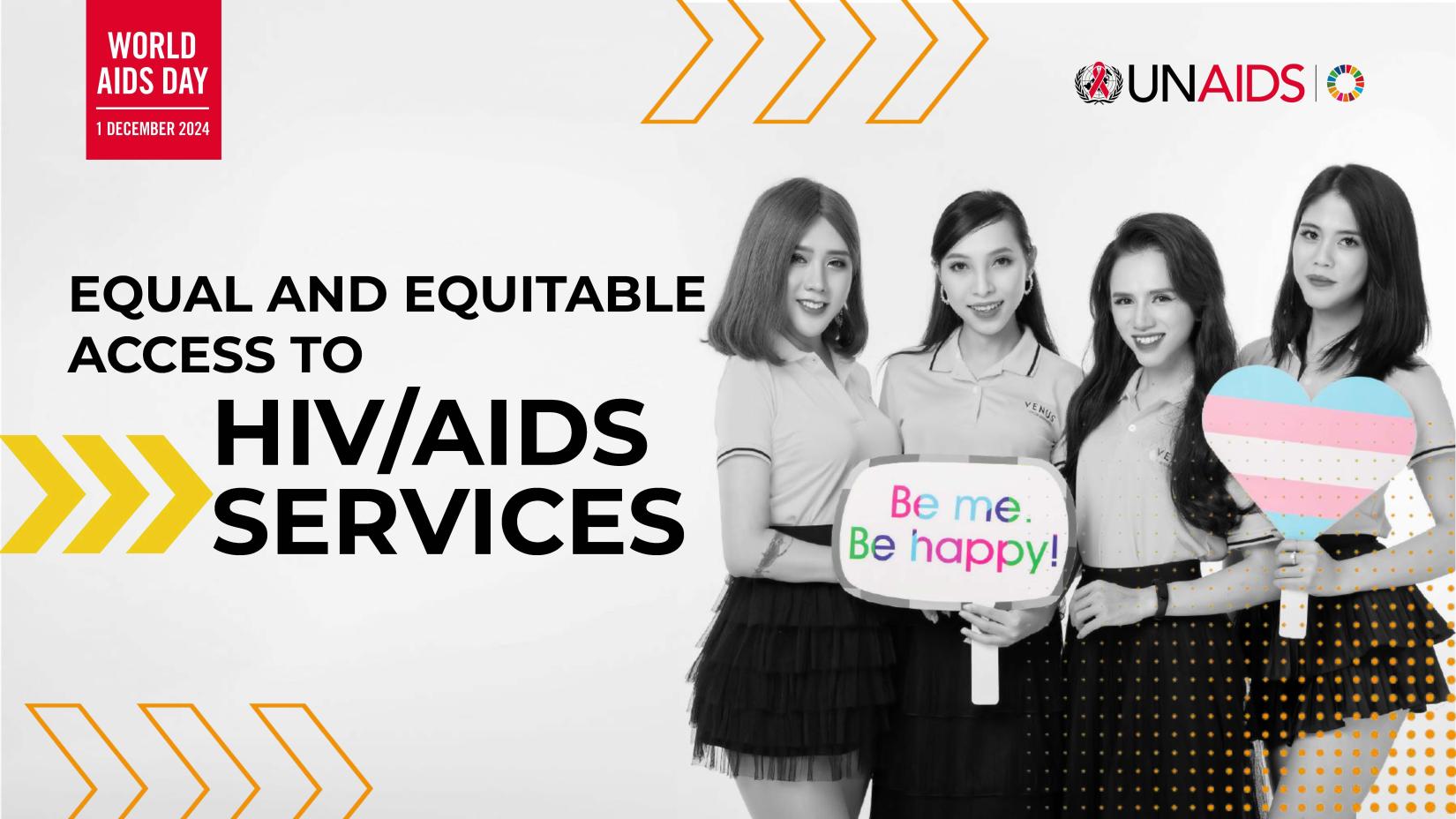Voices from the Transgender Community: “Respect is the foundation for accessible healthcare.”

---

"You make me so confused now. Are you male or female? Why do you look so different from your ID card?"
These questions, asked by healthcare providers, are a stark reminder of the discrimination faced by transgender women in Viet Nam. For Tu Anh, a young transgender woman, and the community she represents, such encounters are still painfully not rare. Transgender people navigating the healthcare system often face not just stigma but deeply ingrained systemic barriers that hinder their access to healthcare services.
Life as Transgender Women
Tu Anh, a leader within the young HIV key populations community, is committed to creating positive changes. Born in the late 1990s in northern Viet Nam, she has grown up witnessing the struggles of transgender women, particularly those from northern provinces and ethnic minority groups. They are doubly marginalized, facing widespread societal prejudice and limited access to non-stigmatized health services.
Living as their true selves—embracing an appearance that reflects their gender identity rather than their sex assigned at birth—subjects transgender people to heightened scrutiny and discrimination.
This bias pervades every aspect of their lives, from securing decent employment to seeking medical care, societal recognition, and protection against gender-based violence.
Challenges in securing stable jobs lead many to seek income through entertainment establishments or sex work as a means of survival, according to Tu Anh. Unfortunately, these precarious livelihoods expose them to significant risks, including gender-based violence (GBV), HIV, and other sexually transmitted infections (STIs). Financial hardship further compounds these challenges, pushing some toward higher-paying but unsafe practices, such as engaging in condomless sex, which significantly increases their vulnerability to HIV and other health risks.
"Economic struggles and societal stigma place transgender persons at risk for physical and sexual violence," Tu Anh says. "Many of us bear the scars of not being accepted, unable to express fully our true selves through our gender identity."
SOGIE[1] Awareness in the Healthcare Settings
Healthcare settings, which should be safe havens for everyone, can become sources of stress and humiliation for transgender women. Medical professionals’ intrusive questions, such as those about gender identity or appearance, compound the healthcare access barriers. Additionally, the lack of gender-affirming documentation means that their identity often conflicts with what is recorded in official records, leading to refusal of services.
“All we want is to be treated like anyone else,” says Tu Anh. In response, she has worked to create support networks within the transgender community, connecting people with clinics and healthcare providers who offer respectful, non-judgmental care. Additionally, the community has initiated HIV clinics specifically designed for transgender people and worked with the Viet Nam Administration of HIV/AIDS Control and development partners to provide SOGIE sensitization training where healthcare workers are trained to understand SOGIE and offer empathetic, non-judgmental care with confidentiality.
“We very much welcome the direction of the Ministry of Health sent to all health facilities recently affirming that being lesbian, gay, bi-sexual, and transgender (LGBT) is about sexual orientation and gender identity, and that cannot be changed nor should be treated,” Tu Anh expressed. “The official dispatch also asked health facilities across the country to provide healthcare services for LGBT persons with respect and no discrimination.”
Despite progress, much more work remains in sensitizing healthcare workers on sexual orientation, gender identity, and expression (SOGIE) on a wider scale to provide non-discriminatory care. SOGIE sensitization equips medical professionals with the knowledge and empathy needed to understand and respect the diverse needs of transgender people. By fostering inclusive practices, healthcare providers can create safe, welcoming environments that encourage transgender people to seek necessary care without fear of judgment or mistreatment, ultimately improving health outcomes for transgender people .
A Call for Accessible and Inclusive Health Services
Tu Anh emphasizes, “People are more likely to seek care when they feel safe, valued, and respected."
As Vietnam observes National Action Month on HIV/AIDS, culminating in World AIDS Day 2024, Tu Anh and members of the transgender community are calling for more meaningful change.
"Building a healthcare system that is inclusive and respectful is essential to ensuring that everyone, regardless of gender identity or sexual orientation, has the opportunity to live a healthy and dignified life," says UNAIDS Country Director for Vietnam, Raman Hailevich. "Change is possible when communities, government, and healthcare providers unite to promote and translate into practice the person-centered approach on a daily basis. To end AIDS as a public health threat by 2030, we must ensure equitable access to healthcare for everyone."
For Tu Anh and countless others in the transgender community, the journey is still long. With support from UNAIDS and other development partner organizations, and under the leadership of the government, the joint efforts will continue for a future where transgender people no longer face discrimination in healthcare settings, where they can access the care they need with dignity and respect, and live healthier, more fulfilling lives.
[1] SOGIE: sexual orientation and gender identity and expression




